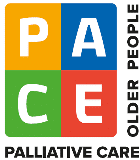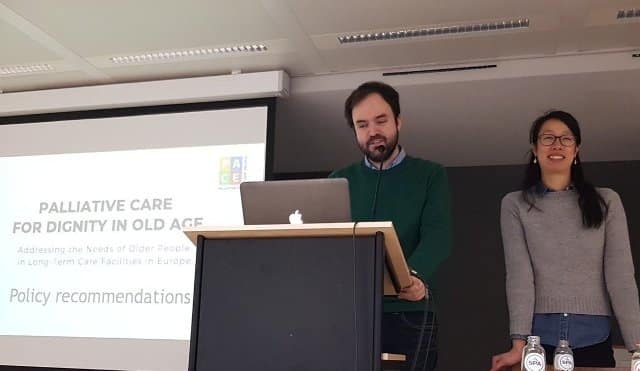
“Palliative care is about death and it is delivered only in hospitals in the last days of life”.“Receiving palliative care means that cure is impossible, and that the person will die irremediably within a few days.”
Although these statements are widespread in society, they are wrong! Palliative care is, first of all, about living: palliative care addresses pain, psycho-social, spiritual and existential issues of those with a life-threatening condition to improve their quality of life and ensure their dignity. Access to palliative care should not depend on age, nor should it depend on the disease: policymakers and those planning health and social care services have the duty to enable access to all those who can benefit from palliative care to improve their quality of life.
The end of the PACE project

The workshop, attended by 35 participants, included presentations from project coordinators, Luc Deliens and Lieve Van den Block (VUB) on the general philosophy of PACE and the PACE Steps to Success Programme that implemented successfully palliative care in care and nursing homes in 6 EU countries. Katherine Froggatt from the Lancaster University presented the White Paper of the European Association of Palliative Care, which provides recommendations on the implementation of palliative care in care facilities.
The PACE Policy Recommendations

The recommendations make the case for a better access to palliative care for older people. They provide policy orientations that are specific to long-term care facilities, to older people living with dementia in such facilities, as well as more general recommendations, including notably the need to raise awareness and fight stigma.
The way forward

For more information, you may contact Nhu Tram, Project Officer, nhu.tram@age-platform.eu, or Borja Arrue, Project and Policy Officer, borja.arrue@age-platform.eu






